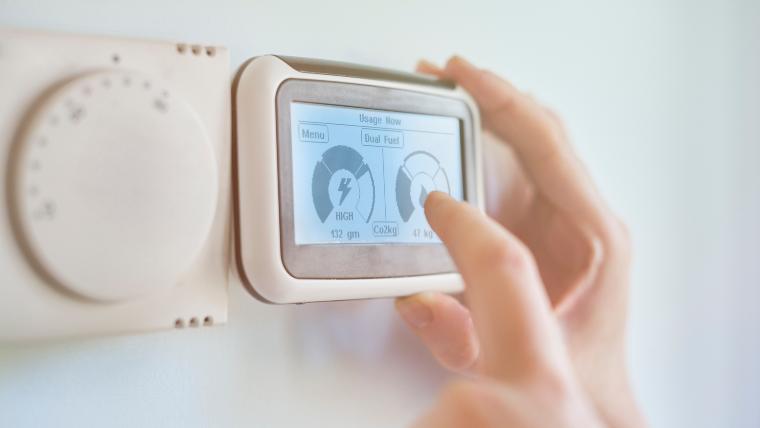How Much Should You Be Spending on Utilities Each Month?

Unchecked utilities are a silent budget-buster for many households. You know what your mortgage is going to be every month and can plan accordingly, but electricity, gas, and water can vary wildly depending on the season and other factors outside of your control. Your many separate utility bills can add up quickly and, unfortunately, most of the time you don’t know what the cost is until you receive your statement.
Is there a better way to plan for utility costs? And is there a "correct" amount you should be spending? Let's investigate.
The right amount to spend
If you’re working with a budget, and trust me, you should be, your utility costs should be no more than 8-10 percent of your monthly income. That doesn’t seem like much, does it? If your monthly after-tax income is $3,000, that means you should be spending no more than $300/month on your utilities. Preferably less.
Thinking back over the last few months, how close to that percentage have you been running? Keep in mind that we're defining utilities as essential costs of running your home. Some people like to consider internet, cable, and phone as part of their utilities (and that's perfectly valid), but for purposes of this budget percent, we're talking about the very basics: electricity, gas, water, trash, sewer, etc.
Average energy costs vary by state, but you should still be working to remain within a budget of 10 percent of your income or less.
Key factors to consider
There are other factors that can play into your costs, too. For instance, do you work from home? If so, you’re using more electricity and water than people who work outside the home. The number of people in your home can have an impact on your utility costs. And the average temperatures in your area during the hot or cold months can play a big part in the cost of your electric and gas bills.
Tips for reducing your utility costs
After reviewing your most recent utility bills, you may find that you need to look for ways to cut back so that you can bring your spending into an acceptable range. Here are a few handy tips that can help:
- Check your hot water heater. The default setting for most is 140 degrees, however, 120 degrees may be sufficient for your hot water needs.
- Repair leaky faucets, toilets, and pipes as soon as you notice them.
- When able, run your appliances at night. Running them during the day often causes heat and will make your AC work harder in the summer months.
- Replace air filters every 2-3 months to keep your AC working efficiently.
- Skip your oven whenever possible. If you’re only warming something up or cooking a small amount, use a microwave, stovetop, or counter top convection oven instead of your big oven. It uses less electricity and/or gas and keeps your home from getting hot in the summer.
- Use ceiling fans to help circulate the cool air. Note that many ceiling fans have two settings: a summer setting that circulates cool air, and a winter setting that draws air upward.
- Check your windows and doors to make sure they’re sealed tight. Keep your cool or warm air in the house instead of letting it outside.
- Adjust your thermostat to keep your home 10 degrees warmer or cooler (depending on the season) when you’re not home.
- Take shorter showers and replace your showerhead. Spending just 2 minutes less in the shower can cut your water usage by 10 gallons. And an efficient showerhead can reduce your overall usage by about 2,700 gallons per year. Look for a showerhead with a WaterSense label.
Reducing your utility spending can not only save money, but it can even help you live more comfortably. If you need more in-depth assistance with your monthly budget, consider working with the financial experts at MMI. Counseling is free and available anytime, online and over the phone.















